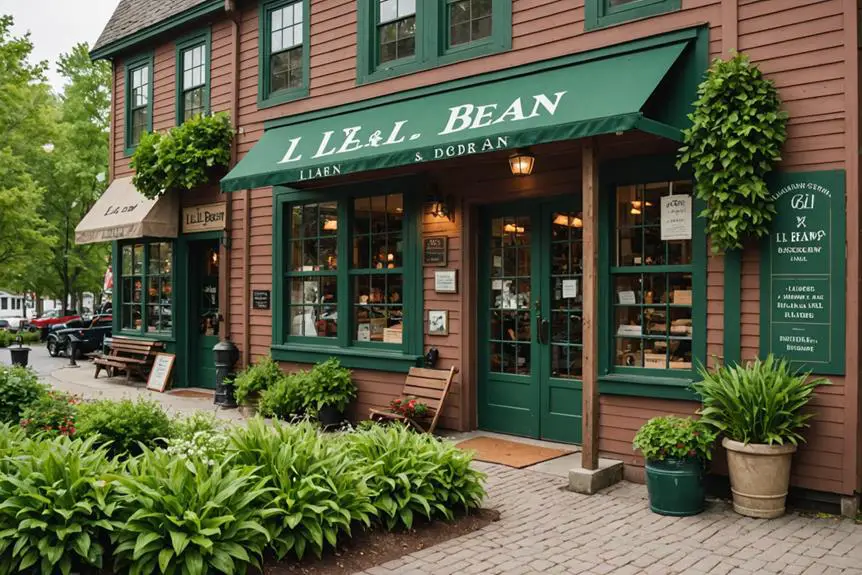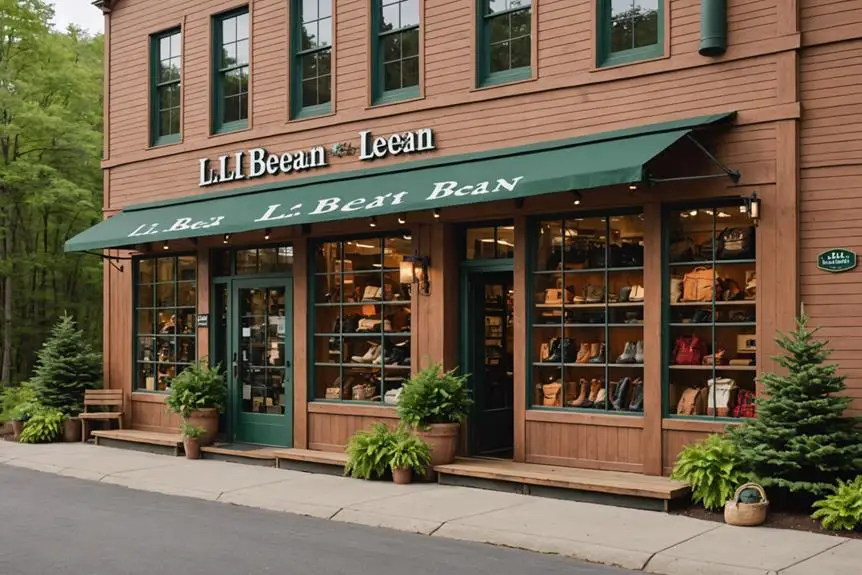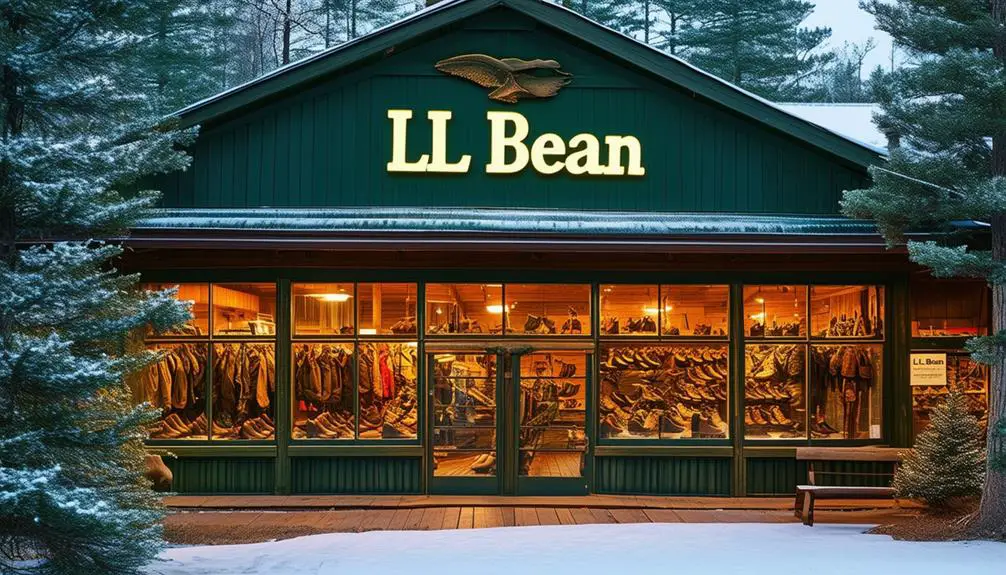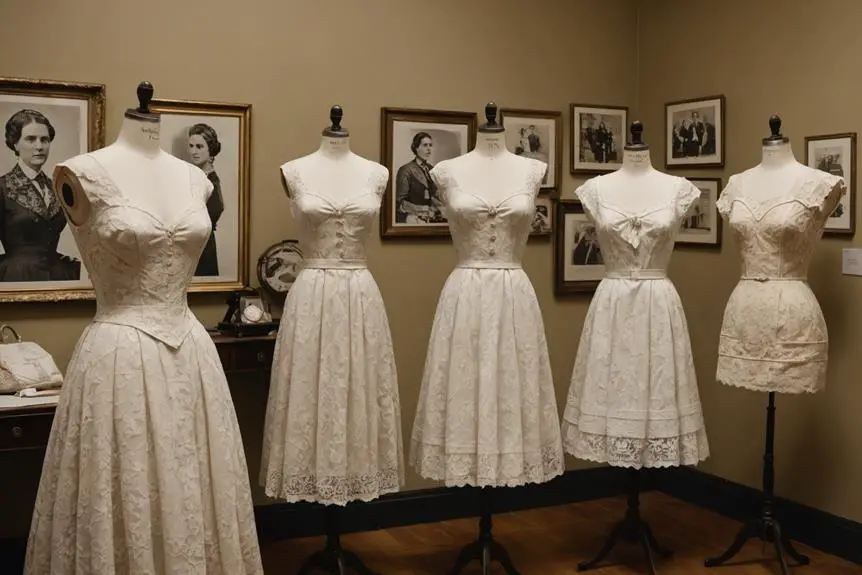L.L. Bean, established in 1912 by Leon Leonwood Bean, began its journey as a specialized footwear brand in Freeport, Maine, with the launch of the now-iconic Maine Hunting Shoe, or Bean Boots. The brand quickly garnered a reputation for quality craftsmanship and exceptional customer service, which propelled its sales to an impressive $237.4 million by 1984. Over the years, leadership transitions, from Leon Gorman's dedication to enhancing service to Christopher McCormick's focus on modernizing the brand, have played a pivotal role in its evolution. Today, L.L. Bean boasts a diverse product line that extends beyond footwear to include fashionable outdoor apparel and accessories, all while maintaining a strong commitment to sustainability. With a significant expansion of retail locations, the brand's deep-rooted connection to outdoor lifestyle and fashion continues to resonate, making it a staple in contemporary wardrobes. Consider exploring further insights into this influential brand's journey and its impact on fashion.
Company Background

L.L.Bean has a rich history dating back to 1912 when Leon Leonwood Bean established the company in Freeport, Maine, primarily selling the iconic Maine Hunting Shoe, known today as Bean Boots. From its inception, L.L.Bean relied on a mail-order business model, operating from a small basement shop. This innovative approach allowed the company to reach a national audience, despite initial struggles with product defects that could have hindered growth.
By 1984, the company had experienced remarkable financial success, with gross sales soaring from $1 million in 1946 to $237.4 million. This growth underscores L.L.Bean's ability to adapt its strategies and cultivate a loyal customer base. A significant factor in this success has been the company's strong brand reputation for exceptional customer service, which remains a cornerstone of its operations.
Under the leadership of figures like Leon Gorman, L.L.Bean expanded its physical presence to 30 retail stores and 10 factory outlets across the U.S. and established a significant international footprint. This combination of effective customer service, innovative sales methods, and physical expansion solidified L.L.Bean's status as a leader in outdoor retail.
Leadership Timeline
The leadership timeline of L.L.Bean showcases a blend of family legacy and strategic evolution that has shaped the company's identity over the years. Founded by Leon Leonwood Bean in 1912, the company initially focused on outdoor products, particularly the Maine Hunting Shoe. This foundation set the stage for L.L.Bean's future in direct marketing, as the L.L.Bean Catalog became a crucial tool for reaching outdoor enthusiasts.
In 1967, Leon Gorman succeeded his grandfather, emphasizing customer service and product quality, which greatly enhanced the company's reputation. Under his leadership, L.L.Bean expanded its offerings and strengthened its commitment to outdoor activities. Christopher McCormick took the helm in 2001 as the first non-family CEO, bringing fresh perspectives while preserving core values.
The appointment of Shawn Gorman, Leon's great-grandson, as chairman in 2013 cemented the family legacy in leadership. In November 2015, Stephen Smith became the first external hire for the CEO role, marking a pivotal shift toward modernizing operations and strategies. This leadership evolution reflects L.L.Bean's adaptability while honoring its rich heritage in outdoor retail.
Product Offerings

Offering a diverse array of outdoor gear, L.L.Bean caters to enthusiasts seeking reliability and performance. The brand's signature Bean Boots exemplify its commitment to quality and durability, providing a trusted option for outdoor adventurers. L.L.Bean's product offerings extend beyond footwear, encompassing a wide range of items designed for various outdoor activities.
- Hiking boots for rugged trails
- Backpacks tailored for comfort and utility
- Tents that withstand diverse weather conditions
- A full line of clothing suitable for all seasons
Each product reflects L.L.Bean's dedication to sustainability, ensuring that functionality doesn't compromise environmental responsibility. The company sources materials both domestically and globally, with a significant portion of production taking place at its Brunswick, Maine factory, which employs over 450 individuals. Classic items, like the 1930s Chamois Shirt and the 1970s Brown Loafer Jacket, underscore the brand's focus on enduring quality. In addition, the evolution of L.L.Bean's return policy demonstrates a balance between customer satisfaction and product integrity. By emphasizing quality, durability, and sustainability, L.L.Bean continues to attract consumers who value reliable outdoor gear.
Retail Expansion
With a robust lineup of outdoor gear, L.L.Bean has strategically expanded its retail footprint to reach more customers and enhance brand visibility. The company's journey began with its flagship store in Freeport, Maine, opened in 1917, which became a notable retail destination, especially after adopting a 24/7 operation in 1951. By 2018, L.L.Bean had broadened its retail presence to include 30 stores and 10 factory outlets across the United States, alongside 25 stores in Japan.
The introduction of the first urban store in Boston's Seaport District in 2018 signaled a pivotal shift toward capturing urban markets. This move allowed the retail company to cater to an audience seeking convenient access to outdoor products in densely populated areas. Additionally, the company launched a Canadian e-commerce site in 2018 and opened its first Canadian outlet in Oakville, Ontario, in 2019, further solidifying its commitment to international expansion. By the end of 2021, L.L.Bean had established eight stores in Canada, showcasing its dedication to enhancing its retail presence across North America, ensuring it remains a prominent player in the outdoor retail landscape.
Cultural Influence

L.L.Bean has become a cornerstone of American outdoor culture, embodying the spirit of adventure and connection to nature since its inception in 1912. Founded by Leon Leonwood Bean, the company has played a significant role in shaping the outdoor lifestyle, offering products that prioritize quality and functionality. The iconic Bean Boots, in particular, have transcended mere footwear to symbolize a commitment to outdoor exploration and heritage.
The cultural influence of L.L.Bean can be seen in various aspects:
- Pop Culture References: Bean Boots have appeared in music, film, and literature, enhancing brand visibility.
- Community Engagement: The company promotes outdoor education through its Outdoor Discovery Schools and seasonal activities.
- International Reach: L.L.Bean's presence in markets like Japan and Canada reflects its broader cultural impact beyond the U.S.
- Trust Among Consumers: Its dedication to quality has established L.L.Bean as a trusted brand among both outdoor enthusiasts and casual consumers.
Frequently Asked Questions
Is L.L.Bean Still Family Owned?
L.L.Bean isn't entirely family-owned anymore, as leadership shifted to non-family members. However, the Gorman family still plays a significant role, influencing company culture and values while maintaining a connection to its heritage.
Where Is L.L.Bean Buried?
You'll find L.L. Bean buried at Hillside Cemetery in Freeport, Maine. His grave's proximity to the flagship store symbolizes his enduring impact on the community and outdoor retail, drawing many visitors who honor his legacy.
When Did L.L.Bean Stop Making Clothes in the Us?
L.L.Bean began shifting clothing production overseas in the early 2000s. By the mid-2010s, most apparel was sourced globally, although certain products, especially footwear, are still manufactured in their Brunswick, Maine factory.
How Much Did L.L.Bean's First Backpack Cost in 1982?
In 1982, L.L.Bean's first backpack cost $29.95. This pricing reflected their commitment to affordability and quality, appealing to outdoor enthusiasts seeking durable, functional gear for various activities, aligning with the era's growing outdoor recreation trend.




Thanks for sharing. I read many of your blog posts, cool, your blog is very good. https://www.binance.com/en-IN/register?ref=UM6SMJM3
I don’t think the title of your article matches the content lol. Just kidding, mainly because I had some doubts after reading the article.